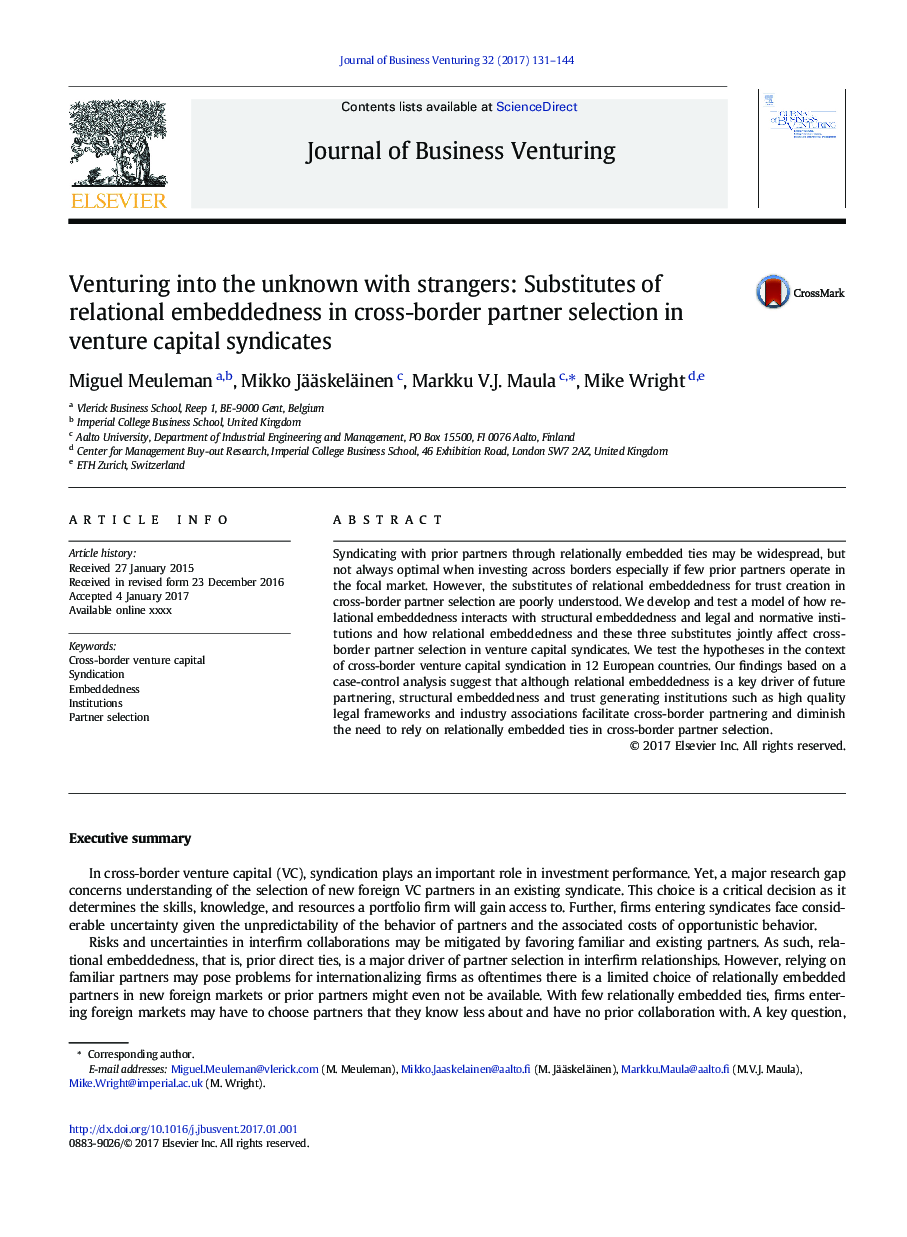| Article ID | Journal | Published Year | Pages | File Type |
|---|---|---|---|---|
| 5109941 | Journal of Business Venturing | 2017 | 14 Pages |
Abstract
Syndicating with prior partners through relationally embedded ties may be widespread, but not always optimal when investing across borders especially if few prior partners operate in the focal market. However, the substitutes of relational embeddedness for trust creation in cross-border partner selection are poorly understood. We develop and test a model of how relational embeddedness interacts with structural embeddedness and legal and normative institutions and how relational embeddedness and these three substitutes jointly affect cross-border partner selection in venture capital syndicates. We test the hypotheses in the context of cross-border venture capital syndication in 12 European countries. Our findings based on a case-control analysis suggest that although relational embeddedness is a key driver of future partnering, structural embeddedness and trust generating institutions such as high quality legal frameworks and industry associations facilitate cross-border partnering and diminish the need to rely on relationally embedded ties in cross-border partner selection.
Related Topics
Social Sciences and Humanities
Business, Management and Accounting
Business and International Management
Authors
Miguel Meuleman, Mikko Jääskeläinen, Markku V.J. Maula, Mike Wright,
